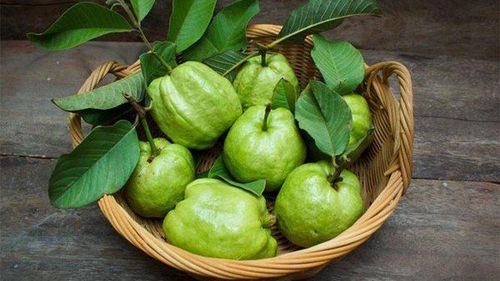Okra fruit is known as a vegetable with high nutritional content and more and more people choose it in their daily menu. So what are the health benefits of okra?
1. Characteristics of okra fruit
Okra, also known by other names such as okra, yellow cotton, corn scrub or coffee herb, ... originated from West Africa. Thanks to its very good tolerance to heat and drought, okra is mainly grown in temperate or tropical regions, mainly in the southern United States. Okra is also grown in our country but it is still mainly in the southern provinces with hot climate.
Okra is a fruit tree that can be grown into a one-year or many-year tree. Okra plants are usually up to 2.5m tall with long and broad leaves from 10cm to 20cm. The flowers of the okra plant are five-petaled, white or yellow, with red spots at the base of the flower. The long okra fruit contains many seeds inside.
Today, okra fruit is increasingly popular and widely used, becoming a daily dish in many countries. Not only because of its unique taste with sticky mucus, but also because of its enormous nutritional value, which is especially good for health. So what are the effects of okra fruit?
2. Effects of okra fruit?
Okra is a plant that contains a lot of nutrients such as Protein, Vitamins A, E, B, Amino Acids, Potassium, Calcium, ... which are beneficial to the human body along with many effects such as:
Diseases Diabetes
Okra contains substances such as insulin that can help reduce blood sugar levels, which helps in the treatment of diabetes. Drinking okra juice can lower blood sugar, so people with diabetes can add okra to their menu to control their diabetes.
Anemia
Regularly drinking okra juice can also avoid the risk of anemia, because okra also has a very high content of iron, potassium, zinc,... blood formation.
Digestive system
Okra is very good for the digestive system, can help improve the function of the digestive system. In fact, the sticky mucilage in okra is made up of polysaccharides such as collagen and mucopolysaccharides that improve the feeding of beneficial microorganisms in the gut. The main effect is laxative, supporting digestive disorders. Okra also contains a lot of fiber along with mucus that can regulate the absorption of the small intestine to help regulate blood sugar. This mucus is also a growth medium for intestinal bacteria, which has a lubricating effect on the intestinal tract.
Constipation
The amount of fiber in okra can absorb water to form large stools, control blood cholesterol levels and help prevent constipation. Okra can also act as a laxative, which, along with fiber, binds toxins to help reduce bowel movements.

Osteoporosis
The mucus when eating okra also has the effect of lubricating bones and joints. Along with a source of vitamin K and folate, okra can also prevent calcium loss, prevent osteoporosis, help bones become stronger and stabilize joints.
Skin beauty
The pectin in okra has the effect of enhancing skin elasticity. Eating okra regularly can improve skin health, the antioxidants in it can help purify the blood, remove impurities that contribute to repelling acne. In addition to using it to eat, you can also crush okra and use it as a face mask to make your skin brighter and smoother.
Asthma
The vitamin C content along with the amount of antioxidants present in okra has the potential to reduce respiratory problems such as asthma. Therefore, when you have asthma symptoms, you can use more okra to relieve its symptoms.
Weight loss
Okra is extremely rich in fiber, including both soluble and insoluble fiber. This fiber is very beneficial for weight loss. Along with the advantage of low calories, okra becomes an ideal food to help control weight.
Preventing birth defects
This is a special use in okra thanks to its high folic acid content. For pregnant women, this substance can help prevent diseases such as neural tube defects. Folic acid is also essential for the body's functions to help reduce the incidence of birth defects in the fetus.
3. Notes when using okra
When you know what effect okra fruit has? You should pay attention to how to use it to enhance the effect of okra.
- Okra is a plant that can be eaten whole, without the need to peel or remove the seeds when processing.
- When processing okra, it should not be overcooked to avoid losing the mucus and preserving the nutrients in them.
- Okra can be processed into many different dishes such as boiled, fried, grilled, fried, ... or pressed into juice for direct use.
- Okra is a vegetable that contains soldering properties, so for those who are in poor shape, or have abdominal pain, they should not eat too much, it will be counterproductive.
- Patients with intestinal disease or irritable bowel syndrome should also not use okra, because its high fructose content can lead to bloating or diarrhea.
Hopefully, the above sharing has helped you better understand the nutritional value of okra as well as how to use it safely and effectively.
Please dial HOTLINE for more information or register for an appointment HERE. Download MyVinmec app to make appointments faster and to manage your bookings easily.













